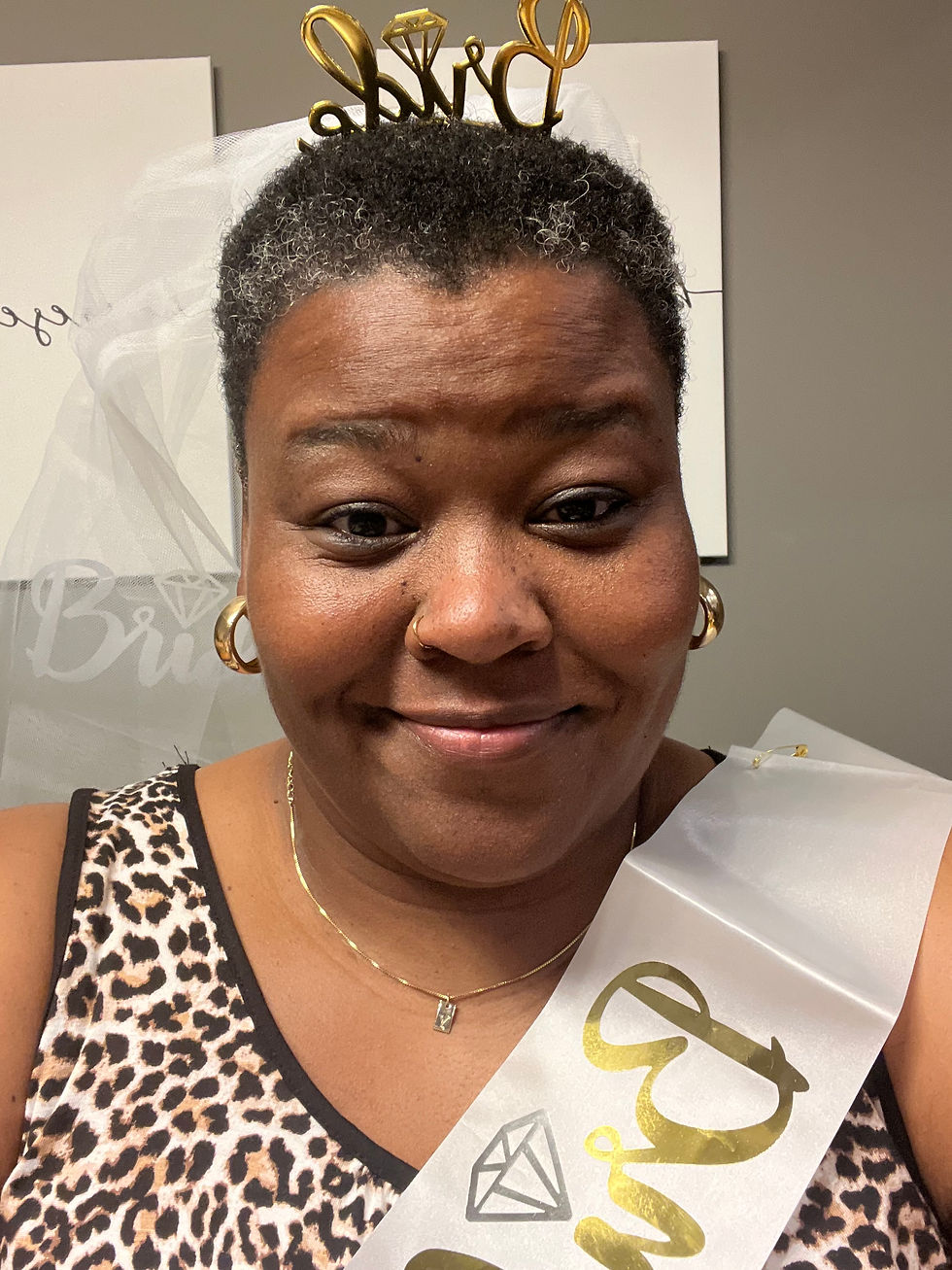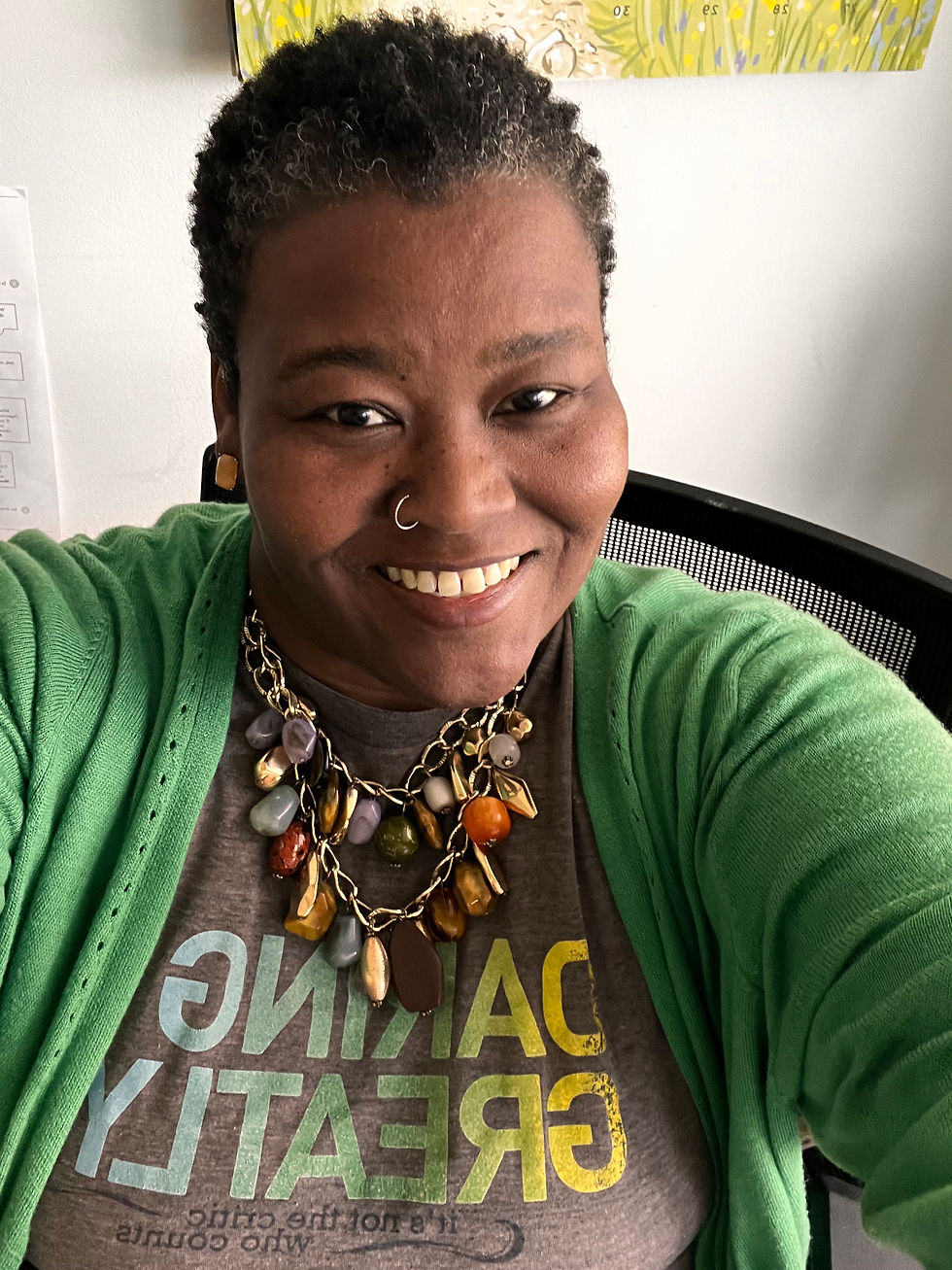Ways to Support Mental Health in the Church
- Charity Goodwin

- May 2, 2023
- 2 min read
In April of 1999, I preached my first sermon. I was 22 years old. The scripture was Phillipians 4:6-7
6 "Be anxious for nothing, but in everything by prayer and supplication, with thanksgiving, let your requests be made known to God; 7 and the peace of God, which surpasses all understanding, will guard your hearts and minds through Christ Jesus." NKJV
Twenty four years later, the anxiety I experienced and preached about has manifested into episodic panic attacks. To be clear, I don’t have a diagnosis for anxiety nor do I take meds, however both could be ascertained.
May is Mental Health Awareness Month. While I wouldn’t ask the church to lift up every monthly awareness our culture designates, this one deserves attention in our sacred spaces. The campaign to end the stigma of having a mental health diagnosis or struggling in difficult seasons needs to be addressed in the church. Scriptures like Phillipians 4;6-7 on face value can leave someone riddled in anxiety because they’re praying but peace has yet to come. Instead, they may need prayer and a therapist. Prayer and a pill. Prayer and a support group.
The power of the pulpit is to speak life into lives. Jesus came so that we might have life more abundantly (John 10:10). For many to experience abundance, they need help that includes spiritual practices but is also beyond those practices.
What does this mean about God?
First, God can handle it. But I, like many who grew up with a stricter understanding of God, have sought to protect God and God’s power, as if we can do that. To acknowledge healing and hope beyond God was viewed as faithless and even blasphemy. God does not need me to protect God. As if by cultivating a relationship with a therapist, having a diagnosis and/or taking meds diminishes 1. God’s image in you and 2. God’s presence to comfort and keep. I believe that God primarily heals and holds us up through other people. People, bodies (somebodies) it's the way God showed up- in a body, Jesus. And a therapist, for example, is a somebody.
Whether you’re a pastor or laity, I hope you consider what you believe about God in light of mental health. I believe God desires us to be whole, which in Greek is sozo. This is the word often used to describe saved/salvation. God’s abundance is wholistic. "Love the Lord your God with all your heart, soul, strength and mind. " Luke 10:27
While it may be too late to host a Mental Health Sunday in the month of May, here are a few things you might consider:
Listen to The Care Ministry podcast for more ideas.
Explore and share resources
Share your own story.
Mention the month and resources in a sermon (or provide in a newsletter)
Post on social media your view of God and Mental Health as a way to encourage and support folks to have spiritual and mental health practices.
Schedule a Mental Health Sunday later in the year when there’s time to fully devote to testimonies, collecting local resources, sermons etc…
© Charity Goodwin, 2023.





Comments